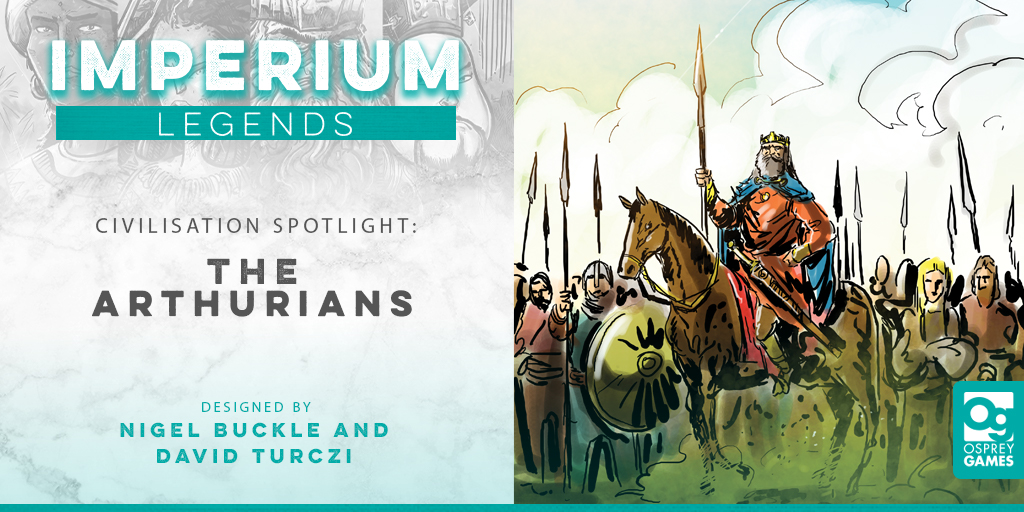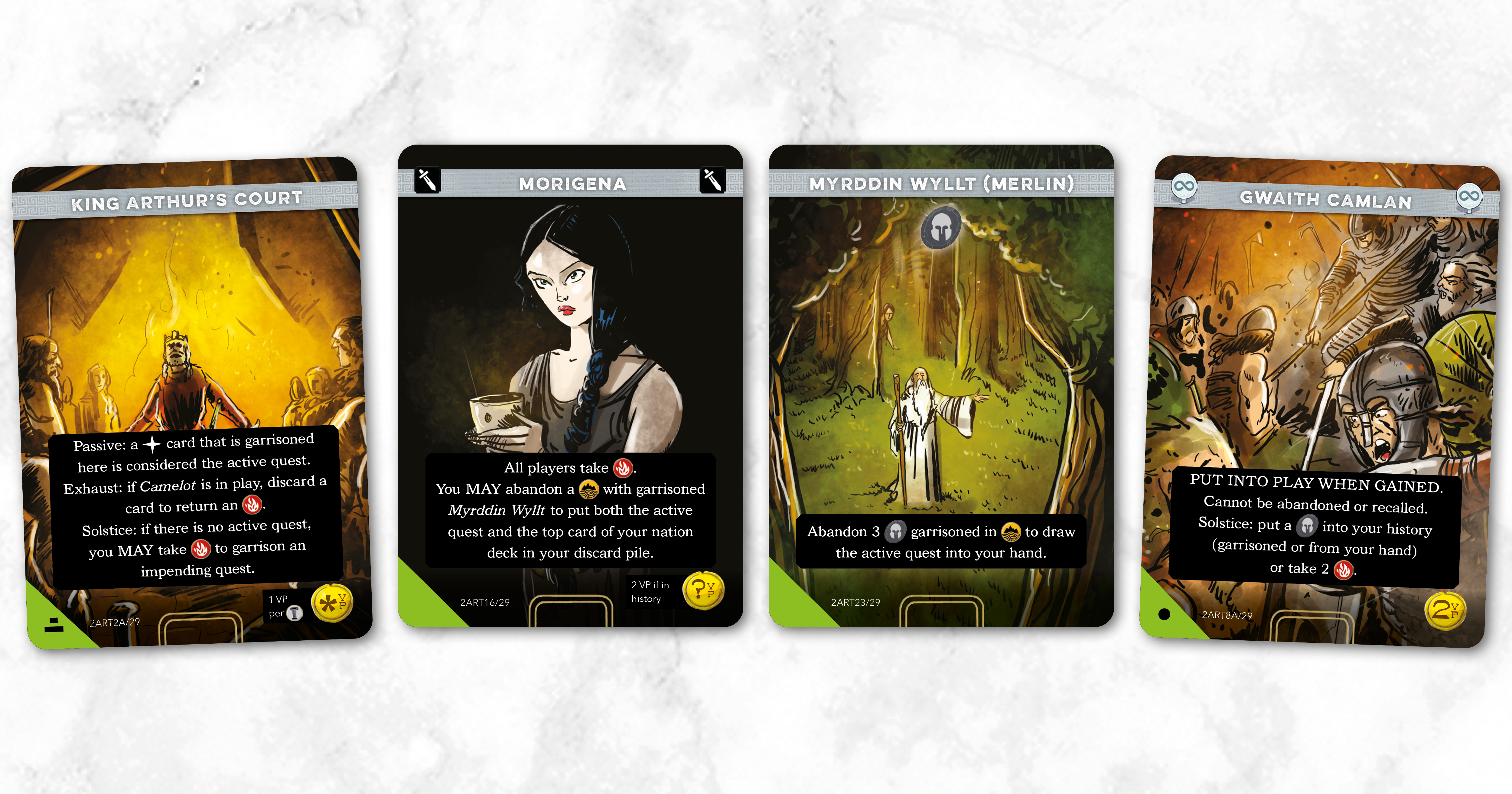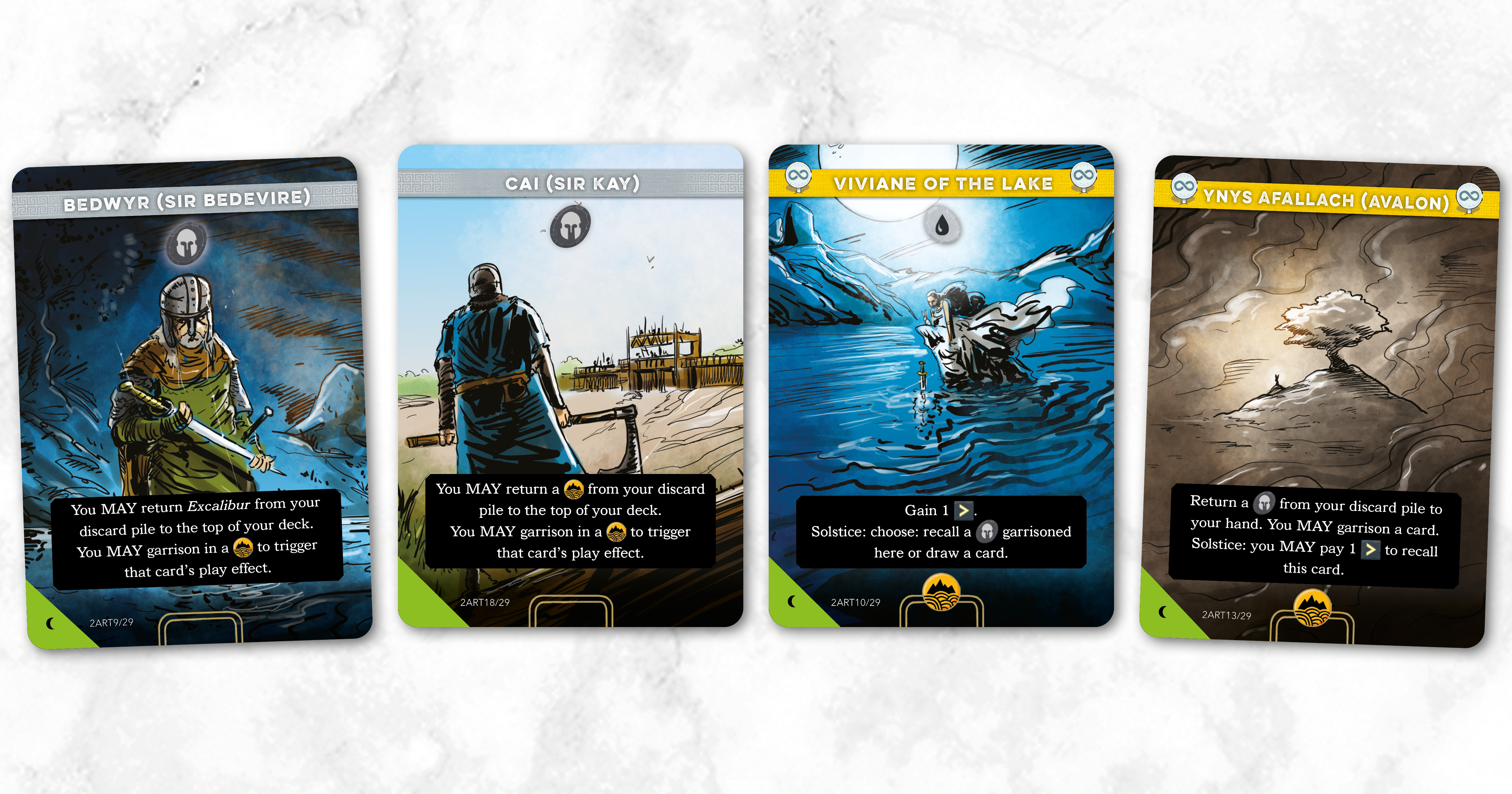In May we’re releasing Imperium: Classics and Imperium: Legends, two standalone deck-building civilisation games designed by Nigel Buckle and Dávid Turczi.
Today on the blog we’re looking at the Arthurians, by which we mean legends around King Arthur, a British leader who supposedly led the defence of Britain against Saxon invaders in the late 5th Century CE. The Arthurian deck is rather different to the others in Imperium. We’ve taken a distinct approach to interpreting the legend, going back to the Welsh folklore rather than using the modern legends in films and books. We have incorporated these stories to craft our own version which you can explore playing the Arthurian deck, which is one of the most challenging in Imperium (we rate this deck 5 out of 5 in terms of difficulty).

When playing this deck, the first thing to realise is that you never become an Empire. Instead, your development cards are replaced with Quest cards and you have an additional card, King Arthur’s Court, that you place below your power card during setup. You use the solstice effect on the Court card to make one of your impending quest cards your active quest.
However, choosing an active quest is only the start. To successfully gain the quest you will need knights. In addition, there is a choice to make. Will you take the seductive swift approach and utilise Morigena, or the more patient approach of Myrddin Wilit?
If you decide to utilise Morigena then you will likely be garrisoning Myrddin Wilt, spreading unrest to all players, and accelerating through your nation deck. This strategy is fast but fraught with danger, as, unlike other civilisations in Imperium, you do not want to cycle through your nation deck too quickly. If you get through all your nation cards you will reach your nadir card, Gwaith Camlan (Battle of Camlann). This card comes into play immediately once you draw it and represents the final battle of King Arthur. At this point you are going to start collecting considerable unrest or be forced to put your valuable knights into your history pile, representing the losses you are taking in the battle.
You may decide to take the slower but safer path and use the wisdom of Myrddin Wylit, but he requires you garrison three knights (representing them searching the land) to claim the active quest. Whichever route you choose you can get access to your ‘development cards’ (the quests) even though you are a Barbarian State.

Your knights are an important and unique part of your deck. Knights such as Bedwyr and Cai represent the great warriors from the Welsh stories. Most of your knights share a special ability. If you play them for their game effect you can garrison them in an already played region and trigger that region’s effect again, even if that region already has a garrison. Of course, you can also garrison them from your hand, like any other card, when you play a region.

Before playing the Arthurians we recommend you look carefully through your deck to understand the differences from the other civilisation decks in Imperium. There are no unrest cards in your starting deck, nor in your nation deck, but to ensure there are enough unrest cards in the shared deck, you will add some extra at the start of the game.
You do not have the usual utility cards like Conquer, Prosperity, Advance, and Glory. Instead, the abilities of those cards are implemented a little differently. For example, if you want to gain Fame then you will first need to quest for Taliesin the Bard. Then you can play the bard to move one of your knights into your history pile to gain a Fame card. Of course, doing that reduces your available knights for questing, and also weakens you when Gwaith Camlan eventually comes into play.
If you want to acquire market cards then other cards will be needed. King Arthur can use your knights to acquire regions and tributaries. Queen Guennuvar can use King Arthur to acquire civilised and uncivilised cards, and she also allows you to play empire cards even though you are always a Barbarian State. Your final quest will be for the Graal and playing that will trigger the end of the game.
We have only scratched the surface in this blog. There are many linked stories and strategies to discover in the Arthurian deck which you will find in Imperium: Legends.
Imperium: Classics and Imperium: Legends are coming out in May 2021. Each box gives you 8 civilisations to lead to glory, and can be combined with one another for a total of 16 civilisations. Preorder your copies today!
Read more about Imperium on our other spotlight blogs:
The Carthaginians
The Egyptians
The Persians
The Mauryans
The Celts
The Qin Dynasty
The Romans
The Macedonians
The Minoans
The Olmecs
The Scythians
The Atlanteans
The Vikings

Comments
You must be logged in to comment on this post. Click here to log in.
Submit your comment